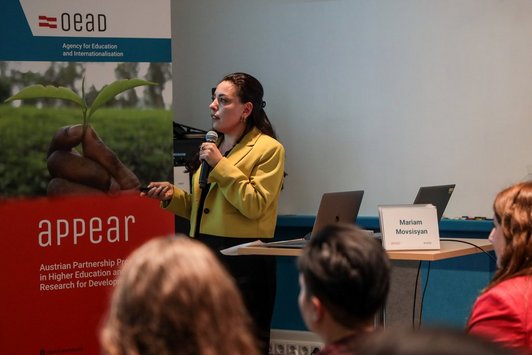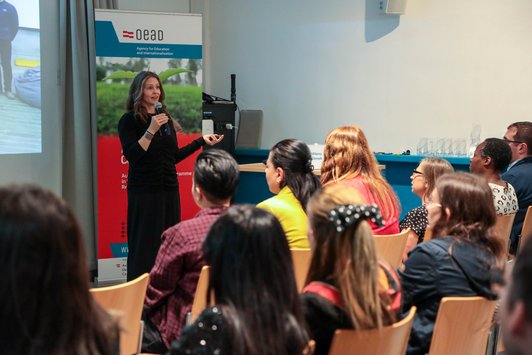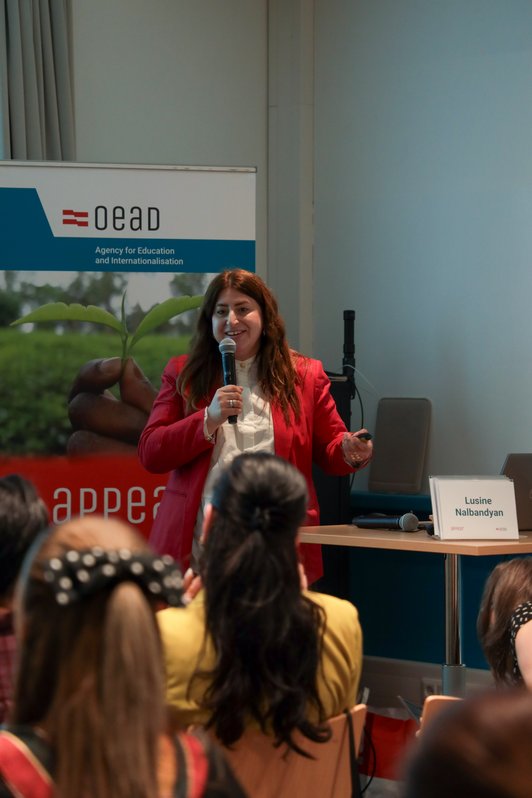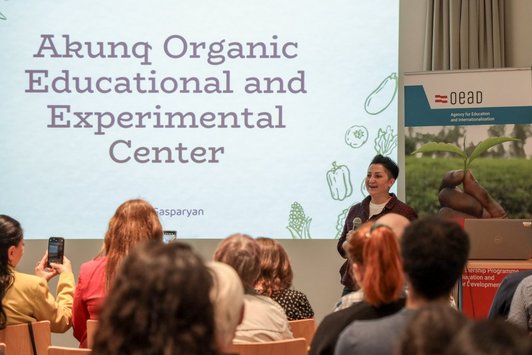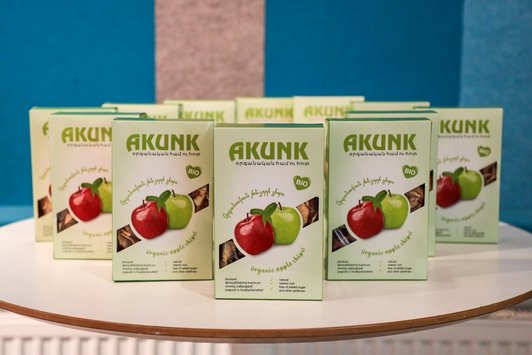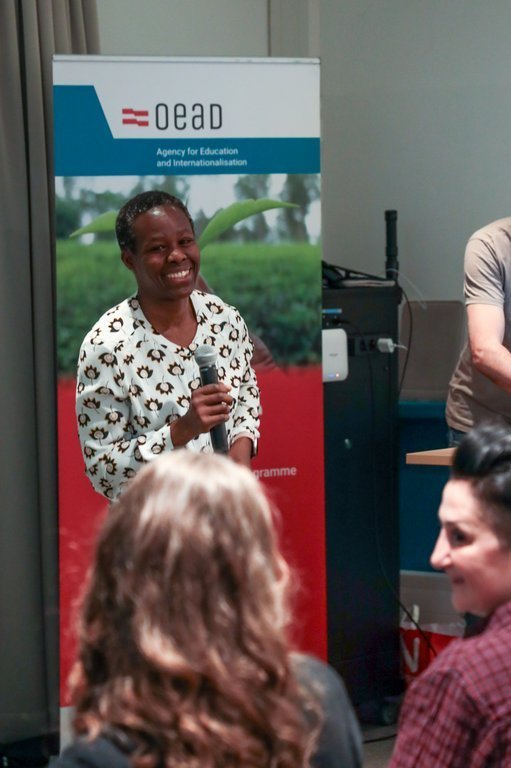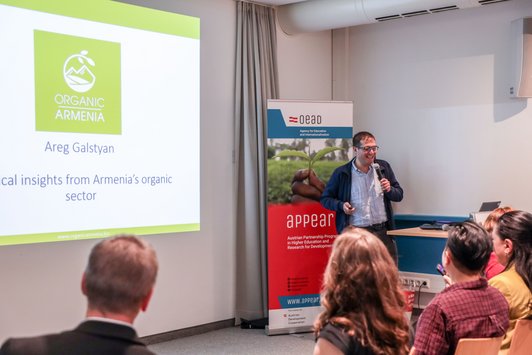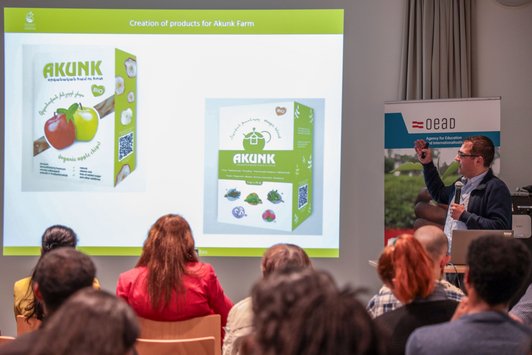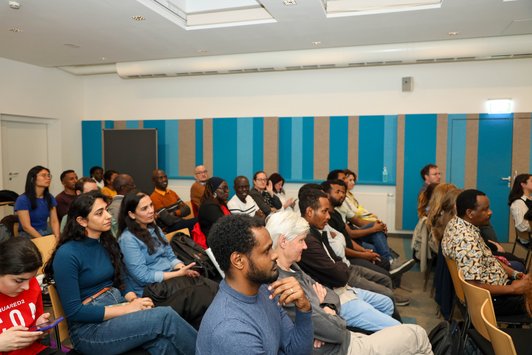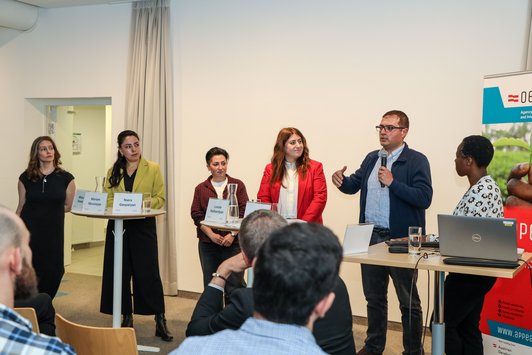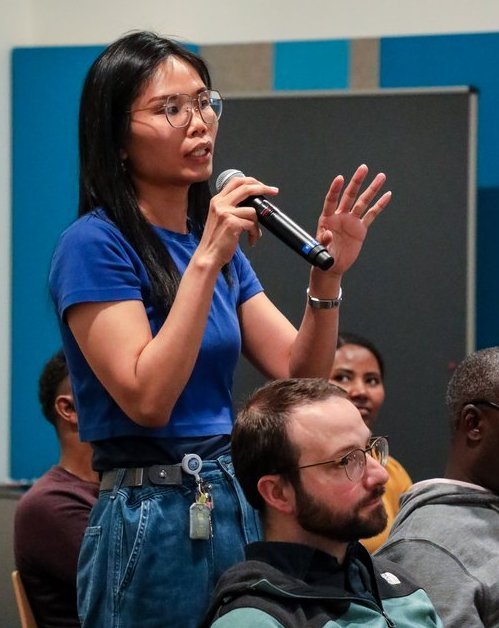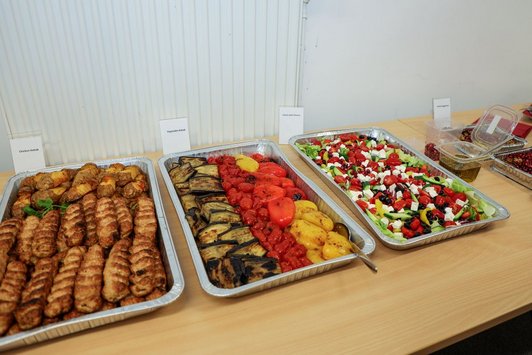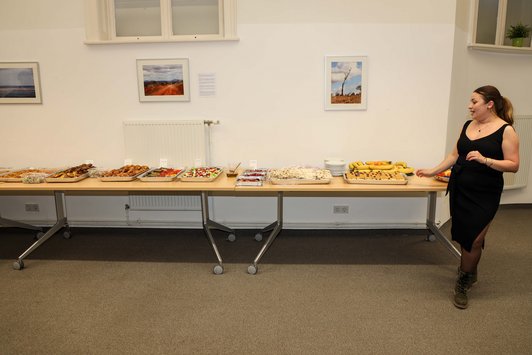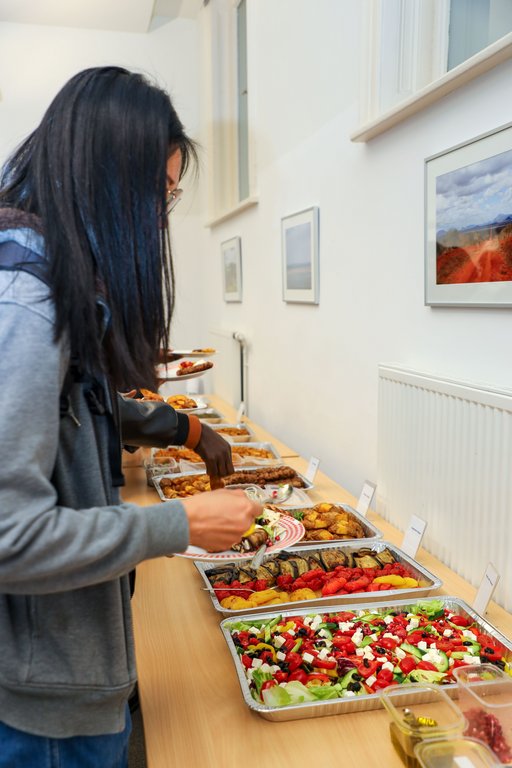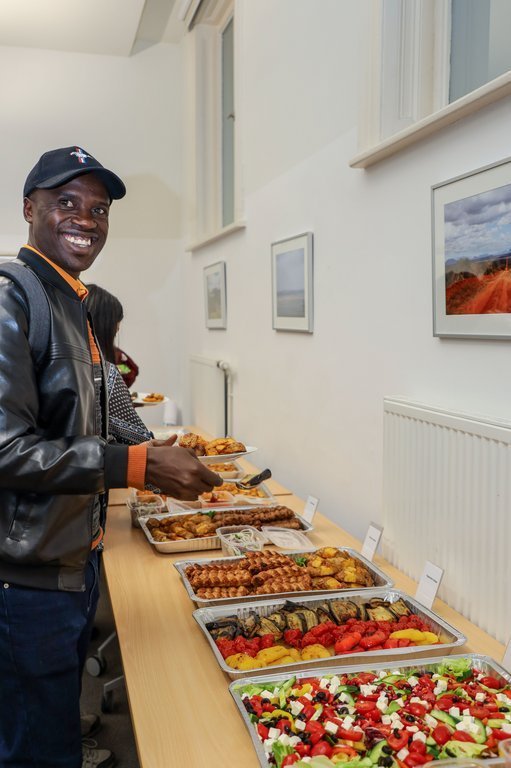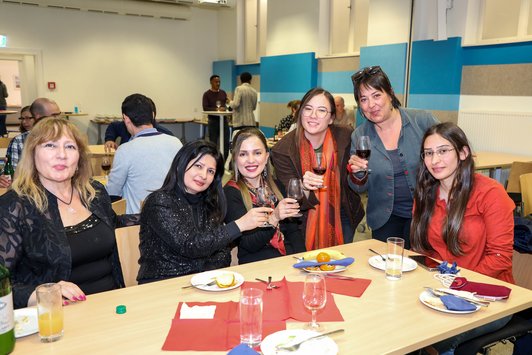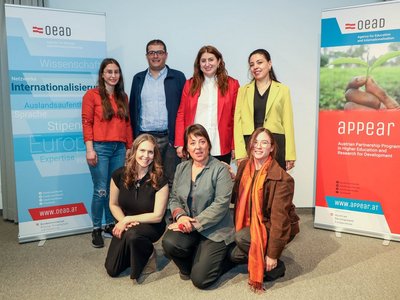

Gerhard Volz, Head of Department for International Cooperation in Higher Education at OeAD, opened the APPEAR in Practice event, that facilitates the exchange of practical insights, lessons learned, and examples of best practice among both academic and non-academic actors involved in APPEAR-funded projects. He was particularly pleased to welcome project partners from the APPEAR project Strengthening Organic Agriculture in Armenia -SOAA, emphasizing that Armenian institutions have not only successfully secured APPEAR funding but have also actively participated in complementary programs such as Erasmus+ International Credit Mobility. These additional mobilities have enabled a greater number of staff members to engage in international exchange, significantly strengthening institutional capacities and fostering cross-cultural collaboration. Since the start of the second phase of the APPEAR program in 2015, when Armenia became an eligible partner country alongside Moldova and Georgia, Armenian institutions have demonstrated remarkable commitment and growth in project participation. To date, a total of 11 preparatory fundings and partnerships have been supported, six of which are ongoing. These include collaborations with Yerevan State University, the National University of Architecture and Construction of Armenia, the National Academy of Sciences, and the Armenian National Agrarian University (ANAU).
Mariam Movsisyan, Vice rector at ANAU, opened her speech by given special attention to the significance of April 24th — a solemn and deeply meaningful day for the Armenian people, as it marks the commemoration of the Armenian Genocide. This date signifies the beginning of the tragic events in 1915, during which 1.5 million Armenians were killed under the Ottoman Empire. In her remarks, she reflected not only on the importance of remembering the victims but also on the broader message of a call to action: “It is a day that compels us to honor our past by investing in our future — through education, innovation, and unity”. Mariam highlighted the importance of initiatives such as the SOAA project, supported APPEAR, which aims to strengthen higher education in Armenia, empower young scholars, and foster connections with the international academic community. These efforts, she noted, transform remembrance into action by promoting sustainable development and cross-cultural collaboration. Mariam concluded with a minute of silence to honor the memory of the innocent lives lost.
Returning to present-day Armenia, she presented a short, visually engaging video that provided participants with rich insights into the country’s culture and landscapes offering a vivid glimpse into the beauty and uniqueness of Armenia.
The video was followed by Mariam’s presentation of the Armenian National Agrarian University (ANAU), the only higher education institution in Armenia dedicated to training and preparing specialists for the agrarian sector. ANAU’s vision is to become a leading Agri-Tech Academic and Research Excellence Center by fostering creativity, innovation, and strong collaboration between agricultural education, research, extension services, and industry. Mariam highlighted the university’s departments and capabilities, introduced various institutional partners, and emphasized ANAU’s involvement in the APPEAR project as well as several ongoing Erasmus+ KA2 initiatives. What stands out is ANAU’s extensive network of international partners and collaborations, reinforcing its strong ties to the global academic and research community."
The SOAA project builds on the achievements of the successful APPEAR academic partnership of the Building Organic Agriculture in Armenia - BOAA project The aims and outcomes of the BOAA project were presented by Milena Klimek, project coordinator at BOKU University, who has been involved in the partnership since its inception. The primary objective was to enhance the knowledge and skills of stakeholders in the organic sector through participatory curriculum development and outreach. She emphasized the significance of the Organic Agriculture Support Initiative (OASI), financed by the European Union and implemented by the Austrian Development Agency’s local office. Drawing on the OASI needs assessment for higher education—which identified the necessity for skilled professionals in organic agriculture and research—a participatory approach was used to develop a tailored curriculum. This effort culminated in the creation of a two-year Organic Agriculture Master Program (OAMP) at ANAU, designed to address the demand for skilled professionals in organic research and practice. The program was collaboratively designed, implemented, and disseminated, and now has three years of OAMP graduates. Discover how the project started in the full presentation.
In the second phase of the project, overall coordination shifted to ANAU. Lusine Nalbandyan, the current project coordinator, began her presentation by tracing the development of the organic agriculture sector in Armenia. With increasing governmental support for smallholder farmers, improved environmental conditions, and greater involvement from international partners, Armenia’s organic sector is rapidly advancing. The BOAA project arrived at a pivotal moment, providing crucial support to the sector through higher education and research. During the second phase, the OAMP program’s quality and effectiveness were further enhanced through curriculum refinement, the incorporation of modern teaching methods, and the strengthening of faculty expertise. Numerous dissemination activities, including promoting the OAMP on national TV, through social media platforms, and at special events, helped engage a wide range of stakeholders. Additionally, SOAA successfully integrated organic agriculture education at the institutional level within ANAU, ensuring the program’s long-term sustainability and setting a precedent for future master’s curriculum development and revision. Both projects also facilitated long-term collaboration between the Armenian National Agrarian University (ANAU) and BOKU University. Lusine concluded by outlining future plans, including scaling the OAMP model to other master’s programs, expanding participatory farms and course offerings, and advancing applied research and sustainable farming policies.
Ms. Naira Gasparyan, one of the instructors at the Organic Agriculture Master’s Program (OAMP) and an agronomist at the Akunk Organic Experimental Demonstration Farm, outlined in her presentation that a key component of the SOAA project was the acquisition of land for a student research farm, which has since evolved into the Akunk Organic Educational and Experimental Center. From its inception, the farm has been integrated into course curricula, master's theses, and supplementary short courses designed for non-university students.The farm plays a crucial role in enhancing students' professional, social, environmental, and technical knowledge. It also serves as a resource for sharing knowledge with interested organizations and individuals in the field. Notably, the farm successfully navigated the transitional stages of certification and, in 2023, received its official organic product certificate.
The final presentation was delivered by APPEAR scholar Mr. Areg Galstyan, who has recently begun his master's degree program at BOKU University. He provided valuable insights from Armenia's organic sector. Areg has been involved in agriculture since his youth, and over seven years ago, he transitioned his family farm to organic farming. A passionate advocate for organic community development, he emphasizes the importance of multilateral cooperation, knowledge sharing, and fostering expertise. Areg has also been actively engaged in the organic processing of fruits and herbs grown at the Akunk Organic Farm, working at the "Antaram" production cooperative, which is owned by the Galstyan family. His contributions include the production of organic apple chips and herbal teas.
The discussion with the audience that followed revolved around organic agriculture and education in Armenia, highlighting the importance of local traditions and the potential for growth in the sector. Participants address various topics, including the sourcing of organic wine, the challenges faced in agricultural projects, and the role of women in organic farming. The conversation emphasized the need for international collaboration, student mobility, and the integration of diverse agricultural practices to adapt to different climates. The speakers expressed optimism about the future of organic farming in Armenia, citing increased interest and enrollment in related educational programes. They also acknowledged challenges such as external political factors and the impact of COVID-19 on enrollment. Overall, the session reflected a commitment to advancing organic agriculture through education and community engagement.
The event was concluded with socializing over Armenian foods and drinks.
Speakers
Mr. Areg Galstyan holds a Master's degree in Pharmacy from Yerevan Medical University. He has been involved in agriculture since his youth. He converted the family farm to organic farming over 7 years ago. Being involved in organic community development, he emphasizes multilateral cooperation and dissemination of knowledge and leading expertise. He has been actively involved in the organic processing of fruits and herbs grown at Akunk Organic Farm - work that takes place at the "Antaram" Production cooperative, owned by the Galstyan family - contributing to the production of organic apple chips and herbal teas. Mr. Galstyan has recently started a Master's degree in Natural Resources Management and Ecological Engineering at BOKU University.
Ms. Naira Gasparyan is an accomplished agronomist with over two decades of experience in teaching, research, and consultancy, specializing in greenhouse cultivation and organic agriculture. She is a lecturer at the Armenian National Agrarian University at the Chair of Crop Production. She is one of the teachers at OAMP and also an agronomist of Akunk organic experimental demonstrational farm. Ms. Gasparyan has participated in numerous international trainings and projects, including collaborations with FAO, AFD, and Erasmus+, enhancing her expertise in sustainable farming systems.
Dr. Milena Klimek is a Senior Scientist at the Institute for Development Research at BOKU University. Her teaching, research, and project work focus on higher education curriculum development and sustainable food and farming systems. She loves using participatory, qualitative research methods to work on co-creating solutions fit for the future. Milena finalized her PhD on the topic of values in farmers markets in Vienna and Minneapolis, Minnesota. Today, she leads the SOAA project at BOKU University in collaboration with ANAU and is also involved in two APPEAR projects in Uganda, one dealing with Masters curriculum on Agroecology in the Rwenzori Region in Western Uganda and in the AMUTI project, working on the governance of natural resources in refugee-host communities in the West Nile region.
Ms. Mariam Movsisyan is the Vice-Rector for International Relations and Educational Reforms at the Armenian National Agrarian University (ANAU), and brings more than 15 years of experience in academic leadership, quality assurance, and the internationalization of higher education. She holds a Master’s degree in Philosophy from Yerevan State University and began her career at ANAU as a lecturer, later taking on key administrative roles, including Head of the Quality Assessment and Assurance Centre. She has contributed to numerous EU-funded initiatives, including Tempus and Erasmus+ projects, and previously led the agricultural component of the USAID Armenian Workforce Development Activity. Currently, she is co-coordinating the APPEAR-funded SOAA project, which focuses on strengthening organic agriculture in Armenia.
Ms. Lusine Nalbandyan is a dedicated agro-ecologist and sustainable agriculture consultant with over 19 years of experience in organic farming, land management, and rural development. She leads the “Strengthening Organic Agriculture in Armenia: Participatory Higher Education and Knowledge Exchange for Development” (SOAA) project at ANAU in collaboration with BOKU University and serves as President of the “Organic Armenia” Agricultural Association. Lusine has held leadership positions in several multiple organisations, including “ORWACO”, “Nairian” CJSC focusing on ecological practices, biodegradable waste, production of organic fertilisers. Her research explores the efficiency of combined organic and mineral fertilisation, adoption of circular economy practices in small scale organic farms. She actively engages in international projects, policy dialogues, and trainings across Europe and Central Asia.

